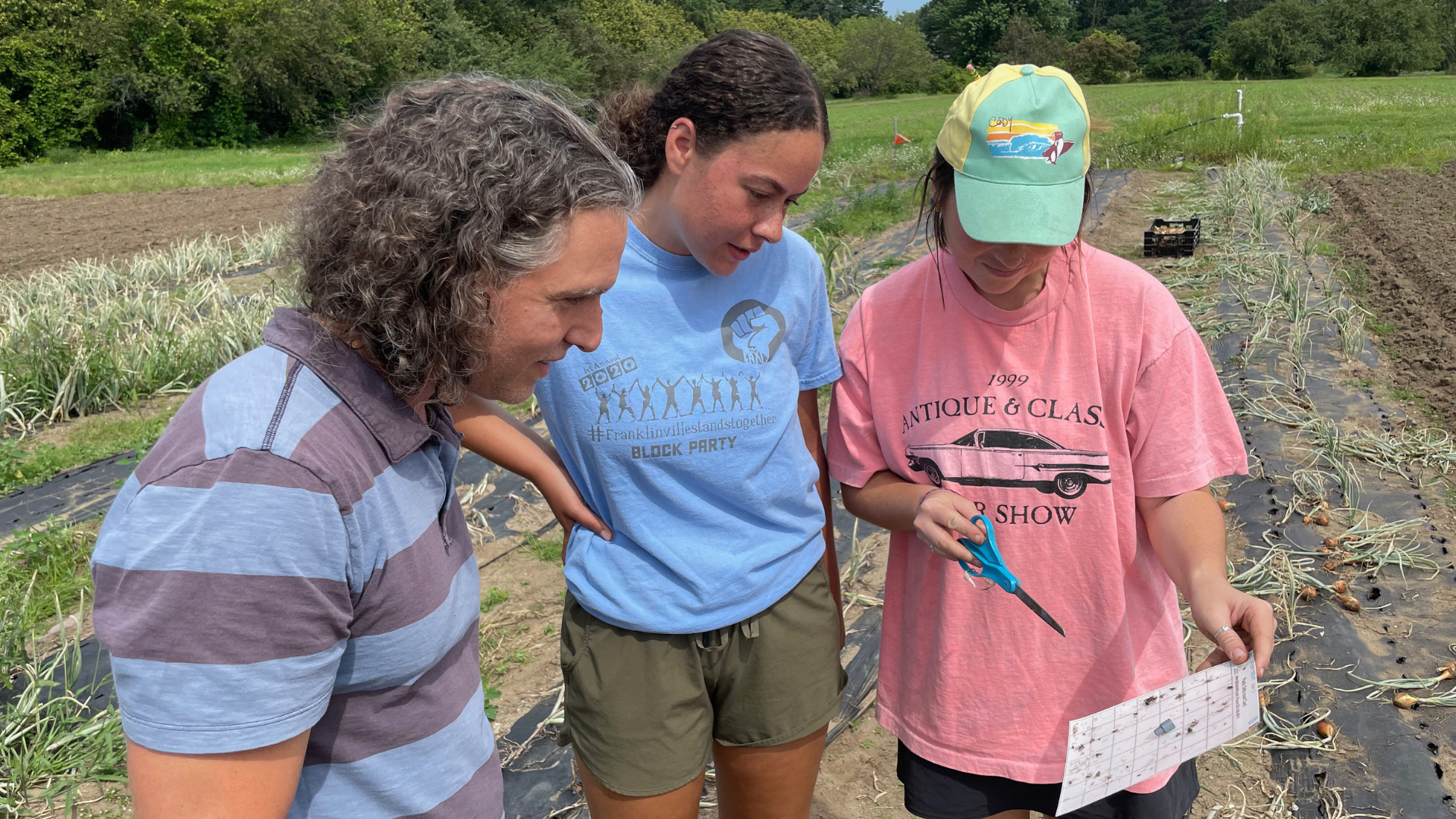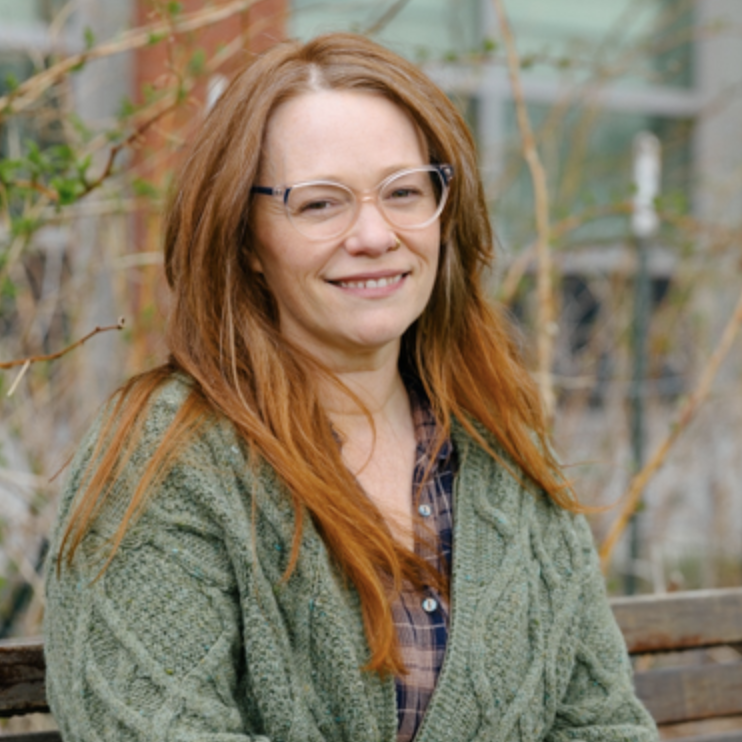Agroecology Extension (AX) Summer Research Fellowship
The Agroecology Extension (AX) Summer Research Fellowship is a fully paid, 10-week research and outreach experience open to undergraduates from across the US. UVM provides the project, mentorship, and research sites. You bring your enthusiasm and willingness to get engaged under the Vermont summer sun!
PROGRAM DETAILS
The AX Fellowship is collaboration between UVM Extension and the College of Agriculture and Life Sciences, and coordinated by the Institute for Agroecology located on UVM’s main campus in Burlington, VT. Fellows will be matched with mentors engaged in various applied research and outreach projects including in pest management, vegetable/berry farming, fruit tree farming, ecological landscape design, environmental science, and sustainable cropping systems.
PROGRAM GOALS
- Provide students with transdisciplinary experiential learning focused on developing adaptable research, leadership, and outreach skills
- Help prepare students for careers and graduate education in agroecology and extension
- Match students with UVM faculty and staff working within Vermont's multifaceted landscape
- Support and contribute to new and ongoing Extension outreach projects dedicated to UVM's Land Grant mission
While we are a largely white-led program in a predominantly white state, we work diligently to address topics of power and privilege in agroecology and extension. To do this, we collaborate with a broad and diverse network of researchers, farmers, organizational leaders, and academics. We invite them into the program to address complex contemporary issues through the lens of agroecology. In partnering with UVM Center for Cultural Pluralism, UVM Identity Centers and the Living Well Program, we further facilitate students’ connections with campus resources focused on wellbeing and belonging.
The AX Summer Research Fellowship is uniquely tailored for students looking to deepen their knowledge of sustainable agricultural approaches, developing transdisciplinary research and outreach skills, and engaging with extension in Vermont.
Check out AX featured on UVM Extension's TV program, 'Across the Fence'! Click here
FELLOWSHIP PROJECT MENTORS
The Vermont Entomology Participatory Action Research Team

Victor Izzo and Maryam Nouri Aiin
The Vermont Entomology Participatory Action Research Team (VEPART) is a transdisciplinary research team dedicated to using Participatory Action Research (PAR) methods to synthesize and integrate grower input at all phases of the research process. VEPART works with a multitude of growers in various crop systems to develop appropriate IPM tactics for northeastern organic growers, and ultimately a more sustainable approach to pest management. They conduct agroecological PAR and outreach in support of agricultural and food systems initiatives in the urban or peri-urban fringe of Burlington, as well as throughout Vermont. VEPART also teams up with the Vermont Vegetable and Berry Grower’s Association to run a pest monitoring program at UVM’s Horticultural Research and Education Center to provide local vegetable and berry growers weekly, Vermont-specific, information on the population dynamics of important pests throughout the growing season. Read more about VEPART here.
AX fellows will lead a regional pest scouting and monitoring program and provide research support for ongoing on-farm field trials.
The Lake Champlain Sea Grant Institute
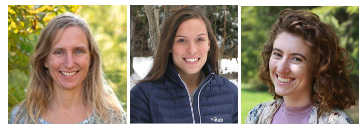
Kris Stepenuck, Ashley Eaton, and Tess O’Brien
The Lake Champlain Sea Grant Institute develops and delivers science-based information to benefit the environment and economies of the Lake Champlain basin. The fellows working with Lake Champlain Sea Grant will assist in ongoing outreach and research initiatives. Our faculty and staff educate target audiences about issues related to water quality and quantity that can impact individuals, homes, businesses, and municipalities. We have particular interest in reaching various cultural communities and those with fewer resources in the basin. In summer 2024, we will provide education aboard the UVM research vessel and in various locations around the Lake Champlain basin to help people understand how to monitor water quality, how to fish, and to understand how our uses of the land impact water quality. We will also host meetings and focus groups with a select suite of Burlington/South Burlington businesses to learn about their use of road salt and decision-making processes during snow and ice management. We will also develop and deliver education about how people and dogs can stay safe from cyanobacteria (harmful algae) blooms. Read more about Dr. Stepenuck's research here
AX fellows are anticipated to assist with in-person education programs, to develop outreach materials for various target audiences to help build watershed science knowledge and promote environmental stewardship, and to help facilitate meetings and focus groups
The UVM Fruit Program
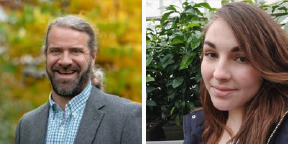
Terence Bradshaw and Bethany Pelletier
The UVM Fruit Program works with apple and grape growers in Vermont to improve production through improved crop, pest, and business management. Our work takes place both at the UVM Horticulture Research and Education Center (HREC) and on commercial farms. In 2023, we will work with grape growers who are implementing alternative practices influenced by organic and biodynamic systems to evaluate their effectiveness and to improve disease management. We will also be monitoring pests in regional apple orchards and generation reports for growers to use in their integrated pest management programs. Fellows will assist with vineyard and orchard management at the HREC; conduct disease assessments in local vineyards; and monitor pests in regional orchards. Read more about the UVM Fruit Program here.
AX Fellows can expect substantial interaction with Farmer Training Program and other summer students, Fruit Program graduate students, and local producers.
The Crop Genetic Heritage Laboratory Group
Eric Bishop von Wettberg, Niloofar Layegh Nikravesh, Kevin Haggerty
The crop genetic heritage laboratory group aims to preserve crop genetic diversity, introduce new crops to Vermont, and improve the sustainability of crop rotations and cropping systems. The fellows working with the crop genetic heritage laboratory will study the performance of kernza, a perennial cereal grain crop developed by our partners at the Land Institute, growing alone or as an intercrop with alfalfa. This perennial cropping system has great potential to sequester carbon into agricultural soils and to provide stable and sustainable grain yields without annual soil tillage. Read more about the crop genetic heritage laboratory here.
AX Fellows will work with partners performing parallel trials in Illinois, Missouri, and Kansas, through the New Roots for Restoration NSF-supported Biology Integration Institute, and participate in weekly virtual professional development activities. Field-based activities that fellows will lead include assessments of soil biological diversity, soil physical structure, and weed diversity.
The Vermont Garden Network
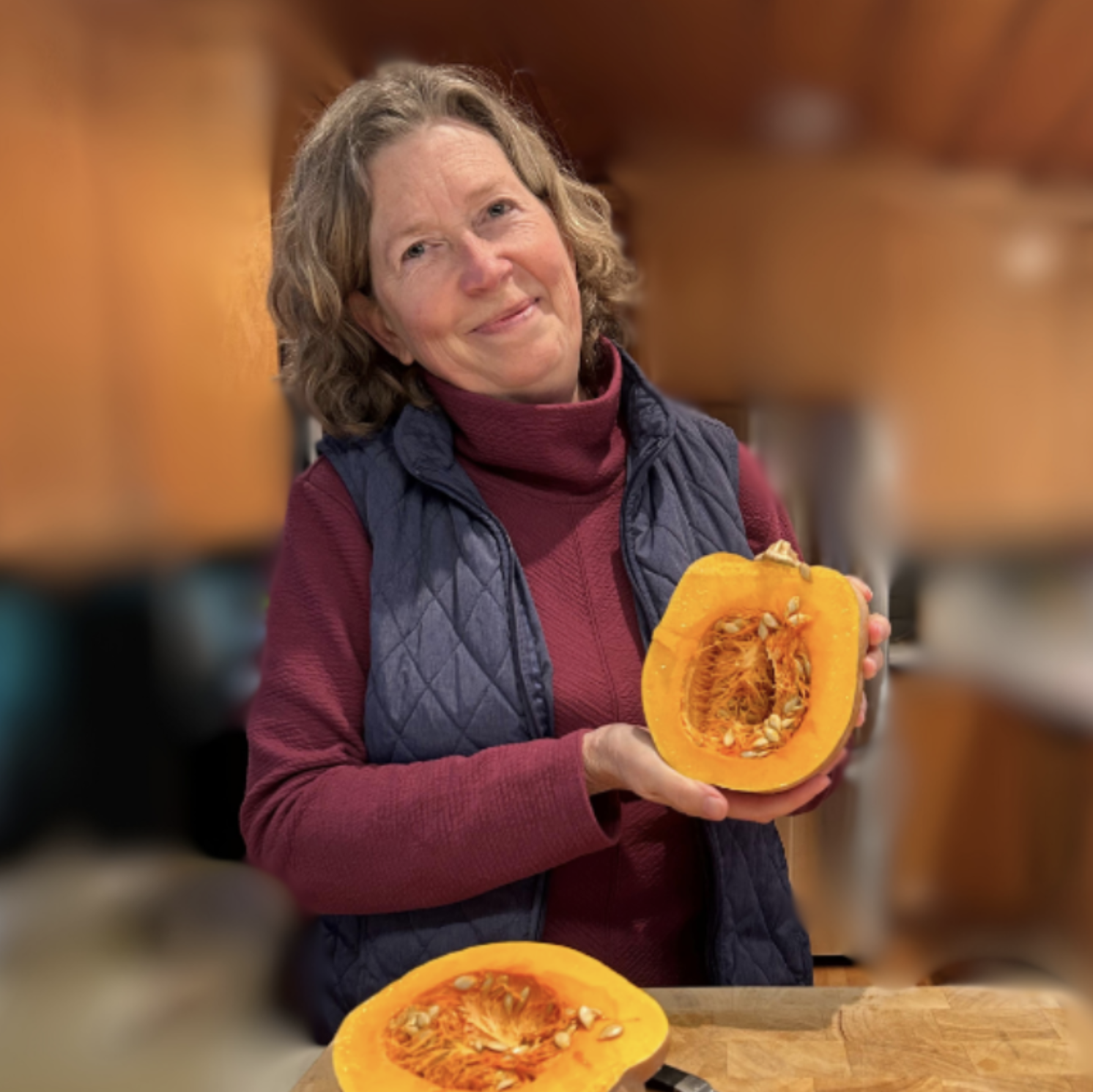

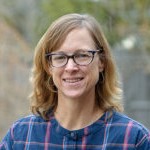
T Hanson and Carolina Lukac (VGN), Karen Nordstrom (UVM)
The Vermont Garden Network educates, supports and connects gardeners. They believe in the power of people growing food to strengthen food security, promote food justice and build community, and they want every Vermonter to have access to the space and resources they need to be successful in growing some of their own. Established in 2001, VGN has helped start and sustain hundreds of gardens all over Vermont and has connected thousands of people to fresh, healthy food and sustainable food production practices. Read more about VGN here.
AX Fellows will participate in hands-on learning exploring soil health and small-scale food production. They will engage with a community growing culturally significant vegetables. Each week, fellows will have an opportunity to not only become a valued garden team member but to document their experiences through story-telling narrative and photos. Fellows will conduct state-wide research to identify the Vermont geographies that intersect with VGN’s goals of addressing the barriers of food insecurity and land access, and consolidate existing strategic studies of demographic regions that target opportunities to maximize garden and nutrition education impact.
AX PROGRAM TEAM

Karen Nordstrom
Cohort Facilitator & Evaluation Director
Karen co-leads the AX leadership development & enrichment programming and the program’s participatory evaluation processes. Karen’s work in education has been deeply intertwined with exploration, service, and a commitment to sustainability. It started with a summer of service with the Student Conservation Association, immersed in wilderness education, which ignited a passion for environmental stewardship and led to two enriching years as a Peace Corps volunteer in El Salvador, where her program focus was on agroforestry. Karen completed graduate studies that delved into educational action research projects, with the first focused on the school garden as an integrating context for science and English Language Development, which took place in the Central Coast region of California, before turning to sustainability in higher education, where her doctoral studies at UVM focused on the field of sustainable agriculture and food systems education. Karen serves as the Policy Co-Director of the Integrated Policy Program at Food Solutions New England, where she works on coordinating regional initiatives across multiple issue areas, including food, farms, forests, fisheries, and communities. Beyond her professional endeavors, she is a coordinating member of the UVM Contemplative Practices Learning Community. She believes in using contemplative practices to cultivate compassion and drive positive social change. In her spare time, you can find Karen exploring nature, practicing yoga, or experimenting with new recipes using local ingredients.
Emily Hoyler
Cohort Facilitator & Project Director
Emily co-leads the AX leadership development & enrichment programming. Emily is an educator, facilitator, un/learner, and aspiring family herbalist. She is also the Operations Manager at the UVM Institute for Agroecology. Emily’s work centers on transformation toward justice, healing, and joy through relational practices. Emily has over two decades of experience working as an educator in a variety of settings. She is a Professional Affiliate at Shelburne Farms, where she also served as the Curriculum Specialist. At Shelburne Farms, Emily’s passion for farm to school and food systems education as a portal for transformation emerged. portal Emily is a current doctoral student in UVM’s Transdisciplinary Leadership and Creativity for Sustainability Ph.D program. Emily’s interests include organizational learning & culture, relational systems change & compassionate systems awareness, unsettling self/systems, cultivation of relational space for change, post-sustainability & place-based education, reciprocal healing with Land, food and farm-based education, and youth leadership. She lives in Ripton, Vermont with her family, where she spends a lot of time hanging out with the trees in the forest. She also loves to cook, especially with locally grown or foraged food, but she is often too ambitious when planting her garden and lets the “weeds” take over!
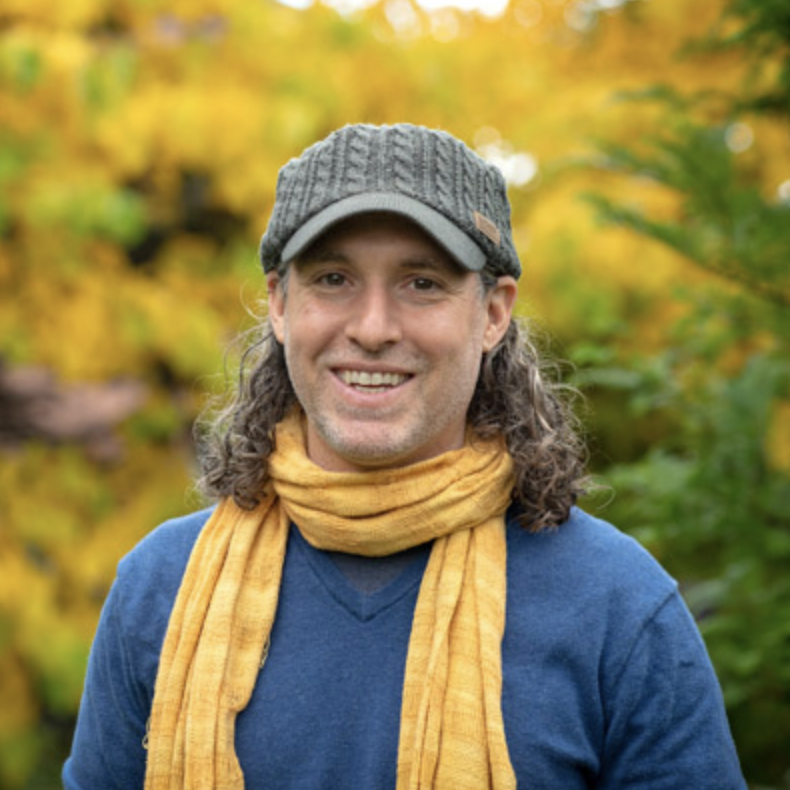
Vic Izzo
Lead Mentor & Curriculum Director
Vic is the lead mentor for the AX Fellowship cohorts and is the primary curriculum developer for the program. In addition to his leadership and development roles, Vic serves as an AX team mentor for the Vermont Entomology and Participatory Action Research Team (VEPART). As one of the core team members of VEPART, Vic spends a lot of his summer with farmers and student researchers developing innovative strategies for managing pests in local agroecosystems. Vic is also a faculty member in the Department of Agriculture, Landscape, and Environment (formerly the Department of Plant and Soil Science) at UVM, where he also holds positions as Co-Director of the Environmental Studies Program and the Head of Undergraduate Education for the Institute for Agroecology. Along with a diverse array of student-centered roles at UVM, Vic is deeply committed to creating collaborative learning opportunities with the students, colleagues, and farmers focused upon creating a more just and ecologically viable food system. When Vic isn’t in the classroom or on a farm, you might find him with his partner Carolina and son Nico at a music festival, in the garden, in a canoe, or hiking through the woods. In case you want to learn more about Vic you could always tune into his radio show on The Radiator, a public access radio station located in Burlington, VT.
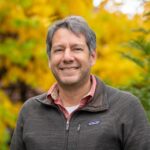
Ernesto Méndez
Faculty Director, UVM Institute for Agroecology
V. Ernesto Méndez serves on the leadership team of the Institute for Agroecology as the Faculty Director and is a Professor of Agroecology at the University of Vermont’s Department of Agriculture, Landscape of Environment. His research and teaching focus on agroecology, agrifood systems, smallholder coffee systems, participatory action research (PAR), and transdisciplinary research approaches. He has over 25 years of experience working with smallholder farmers and Indigenous communities in Latin America and collaborating in agroecology efforts in a wide diversity of regions. Recently, these efforts have expanded across the world and currently include education and research initiatives in the Northeast U.S.A., Latin America, Africa, and Europe. Since 2022, he serves as vice-president of the board of directors of the Latin American Scientific Society of Agroecology (SOCLA). Ernesto supports the AX program by working to align activities with the IfA’s guiding pillars, supporting BIPOC participants and sharing agroecology content and experience. Ernesto was born and raised in El Salvador and maintains deep connections with his Central American roots.

